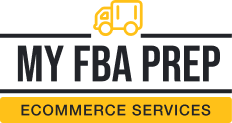
How DTC Sellers Can Use Webinars and Events to Boost Their Brand (and Get More Sales)

Webinar and virtual events bring a rare advantage to the table. For one, you don’t need a huge budget to pull off a massive (and successful) event. Secondly, there are various types of events you can host to boost your customer acquisition strategy.
For example, BarkBox, a dog toy subscription service, cleverly hosts Open BARK Nights and Dogstrume parties throughout the year. While many of these events are in person, the company could easily convert them to an online format to engage an even larger crowd.
The recipe for a successful online event consists of a clear strategy, an engaged team, and the right platform. Keep reading for specific steps on how to organize your own branded event.
The advantages of virtual events
They won’t drain your wallet
Live events require a large budget to book venues, talent, food, equipment, and other physical resources. Virtual events, on the other hand, need only a computer, a hosting platform, and staff to coordinate.
Anyone can join from anywhere, anytime
Virtual events aren’t limited by physical boundaries. Even if people are located in different time zones or are unable to make it the day of, they can add their name to your contact list to receive recordings or exclusive perks.
They can be repurposed
You can repurpose or reshare most online events long after they end. For instance, you could post recordings on YouTube, share clips on social media, or generate blogs and podcasts using the same material discussed in your event. Each of these opens up new opportunities to draw more ongoing traffic.
You grow your contact list
Many marketers salivate at the influx of leads a well-targeted event can attract. Every registrant has to provide you with their contact information, which you can then use to follow up via emails, ads, or other channels they regularly check.
5 Types of events to host
There are a number of different directions you can go with your event, each of which drive home a unique goal. Here are five types for your consideration.
1) Product demos and launches
There’s a reason why QVC is still going strong today. In fact, some say Amazon has nothing on QVC, which drove upwards of $14.2 billion in revenue last year. Livestream shopping itself is said to grow four-fold to $25 billion in the U.S. within the next two years.
Needless to say, live product demos and launches may be worth some experimentation. The most successful livestreams (when you peek at QVC’s playbook, at least) tend to push special, limited-time promotions, and show products in action so viewers can imagine themselves using them.
2) Online socials
In a world dominated by social media and dating apps, virtual meetups can be especially alluring. By helping people connect, you can nurture a community that shares common interests or values that also align with your brand’s.
You can take this opportunity to spark conversations on topics relevant to your company, or simply show people a good time, which they’ll then associate with your brand. The ultimate goal is to engage people who could convert to customers — and give them a reason to re-engage or recommend your brand to their friends.
3) Live classes and workshops
Classes and workshops are a classic, but effective way to attract an audience. The key is to think of a theme that’s highly relevant to your target customer.
For instance, The Pastry Project hosts online baking classes (which many remote companies love) to entice people to purchase their baking subscription boxes.
Alternatively, if you sell sports apparel, you could host fitness classes. Or, if you sell art supplies, you could hold live workshops with a professional artist. The possibilities are nearly endless, so don’t be afraid to think outside the subscription box.
4) Expert panels
Some of the most compelling events headline a name that people already have a vested interest in. Along those lines, you could sit down with an industry influencer or an expert from a company that piques your customers’ interest.
Format your event as a live chat in which you discuss a relevant topic in a timely manner. Or, have your guests co-host a webinar where they impart their wisdom on a specific subject. Whichever way you go, avoid making your event about selling your product; rather, focus on satiating your customers’ curiosity by asking questions they’ve been itching to have answered.
5) Q&As
Live Q&As are a great way to involve your audience from start to finish. They can center on a company, person, or topic your customers find interesting and address your audience’s questions.
You can collect questions beforehand through social media, although you should also set up a process for fielding questions during your event. Many brands have successfully used contests, too, to boost excitement and keep their audiences enthralled. Similarly, you could enter participants into a raffle for every question they ask, then reveal the winner at the end of your event.
Wrapping up – Close the gap between you and your customers with DTC webinars
It’s not every day that customers find themselves engaging face-to-face with their favorite brands. Webinars and other online events provide a forum for this kind of interactivity, and allow your audience to add a face to your brand. Consider how you can weave events into your marketing strategy and leverage them to forge deeper, long-lasting connections with your consumers.
